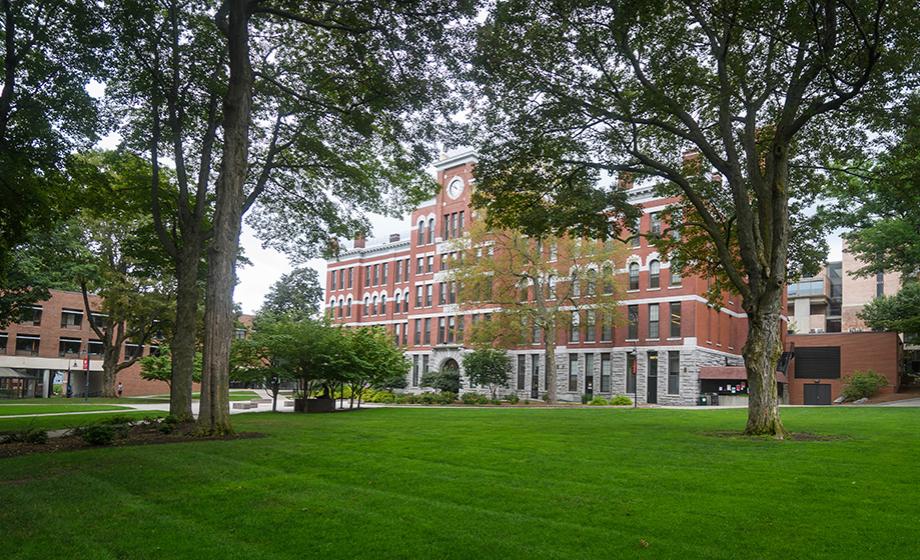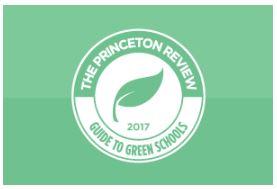Princeton Review features Clark in ‘Green Colleges’ guide

Clark University is among the most environmentally responsible colleges in The Princeton Review “Guide to 375 Green Colleges: 2017 Edition.“
“Clark is proud to be included among the most sustainable campuses in the 2017 Princeton Review’s Guide to Green Colleges for the seventh consecutive year, and in fact since the Guide has been published,” Jenny Isler, director of sustainability at Clark University, said. “Here at Clark we ‘walk the talk’; sustainability — environmental, social and economic perspectives — is not only built into our daily operating practices but is a major academic and research component, an institutional core value, and an expression of who we are and how we prepare our students for success as they meet the challenges of a rapidly changing world.”
The guide highlights Clark’s “bold” Climate Action Plan, which sets a goal of zero emissions by 2030. Also noted are green campus features that started with student initiatives such as the co-generation plant (which provides heat and power to 70 percent of campus); the student Recycling Crew and its 50 percent waste diversion rate; the composting program, which composts 100 percent of food and paper waste in the Higgins Café; and the campus Electric Vehicle charging stations, which were the first in central Massachusetts.
Learn more about Clark University’s rankings and recognition.
The Princeton Review chose the schools for the guide based on data from the company’s 2016-17 survey of hundreds of four-year colleges concerning the schools’ commitments to the environment and sustainability. Schools received “Green Rating” scores (from 60 to 99) for their sustainability-related policies, practices, and programs. More than 25 data points were weighted in the assessment. Schools with Green Rating scores of 80 or higher made it into the guide; Clark received a green rating score of 90.
Since the survey data was collected, Clark has opened the Shaich Family Alumni and Student Engagement Center on campus. The building incorporates a full roof solar array that will provide up to 50 percent of the building’s energy needs, a landmark for the city of Worcester and for the University. It’s expected to receive LEED Gold level certification in the coming months.
The profiles in The Princeton Review’s “Guide to 375 Green Colleges” provide information about each school’s admission requirements, cost and financial aid, and student body stats. Each profile also lists “Green Facts” that include details on the availability of transportation alternatives at the schools and the percentage of the school food budgets spent on local/organic food.


